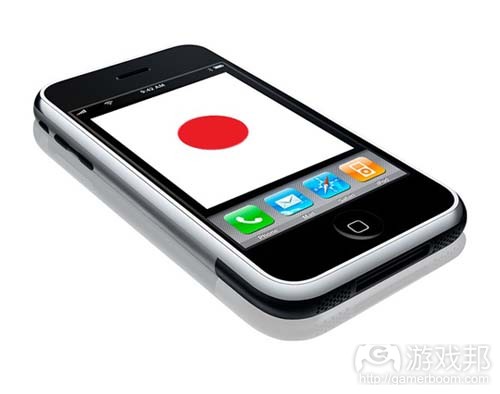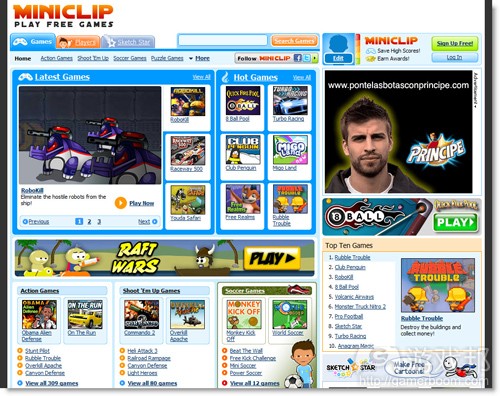每日观察:关注PopCap业务重组及裁员等消息(8.22)
1)据pocketgamer报道,PopCap Games联合创始人John Vechey最近承认公司正进行业务重组,并将在北美地区裁减50名员工。Vechey声称EA将不再允许PopCap独立运营的消息并非实情,公司在其他地区业务仍将持续扩招。
但位于爱尔兰都柏林的工作室(主要负责PR、市场营销、移动开发及客服支持)也可能面临被关闭的命运,Vechey表示PopCap正与都柏林成员探讨如何提升其欧洲业务盈利性,而无需彻底关闭工作室等事宜。
Vechey表示当前游戏行业趋势已转向免费增值模式、社交及手机游戏领域,用户口味的变化促使PopCap进行业务重组,并面向新平台开发新型游戏,如果PopCap不能顺应时代潮流,未来就无法盈利并推出新IP内容。
2)comScore最近数据显示,日本智能手机用户自2012年初以来发展迅速,目前有四分之一日本用户持有智能手机,其中三分之二是Android用户(游戏邦注:comScore报告调查了2012年第二季度日本移动市场的4000多名手机用户)。
在今年第二季度,日本智能手机用户超过2400万,在日本所有手机用户中占比23.5%;虽然这一比例仍然不高,但已经比2011年底增长了43%。
Android在日本智能手机市场份额达64.1%,苹果占比32.3%,微软占比3.2%。
在所有移动设备(包括智能手机与非智能手机)中,夏普最为领先,所占市场份额达22.6%。其次是松下,占比13.8%,第三是富士通,占比11.9%,第四为NEC(9.5%),第五为索尼(7.2%)。
3)据DigiTimes报道,最近有传闻预测苹果iPad Mini一个月产量将达400万部,这是有史以来最大规模的苹果新产品首发量。值得注意的是,微软Surface平板电脑预计一整年的出货量也仅为300万部,而原版iPad最近一个季度每月销量也不足600万部。
4)据insidemobileapps报道,谷歌日前宣布Google Play礼券日前已通过RadioShack、Target和GameStop等合伙零售商渠道发售。
这些礼券的面值分别为10美元,25美元和50美元;用户可用这些礼券通过Google Play购买应用、电子书、音乐及其他媒体内容,但不可用于兑换应用订阅,杂志订阅服务,或者Google Play所出售的任何硬件产品。
这是Google Play首次支持非信用卡用户购买其中产品的举措,这将方便儿童用户通过礼券购买应用内容。
5)Flash及手机游戏发行商Miniclip日前宣布其iOS、Android游戏下载量已超过1亿次。该公司移动主管Sergio Varanda指出,Miniclip跨平台游戏体验的发展得益于公司内部的X-Port Genie技术,该技术可轻松将Android游戏移植到iOS平台,从而扩展了玩家的手机游戏体验。
6)据insidemobileapps报道,香港手机游戏工作室Animoca最近表示公司在Android平台的成功得益于不走寻常路的运营策略。
他表示多数手机游戏开发商每三四个月发布一款游戏,而Animoca在这个时间段却可推出多款游戏,其目标并非晋升为顶级开发商,而是成为“应用超级市场”,为玩家提供大量而丰富的选择。
据其所称,公司目标是在今年底前让旗下产品数量超过400,目前其应用总数超过300,计划在2013年前再推出60款应用。
该公司目前在香港及韩国等工作室成员已超过150人,有90%游戏是自主开发的游戏(其余为第三方发行游戏),有30%用户来自北美,30%为欧洲用户,30%为亚洲用户,10%则是其他地区用户;至今用户总数为4500万,应用总下载量超过8000万次。(本文为游戏邦/gamerboom.com编译,拒绝任何不保留版权的转载,如需转载请联系:游戏邦)
1)PopCap reorganises, losing 50 staff in US and maybe its Dublin office as it deals with F2P social mobile shift
by Jon Jordan
With rumours spinning around the internet, PopCap co-founder John Vechey has spoken out on PopCap’s reorganisation in a blogpost.
Hitting back at those who claim the whole thing is an EA put-up job, Vechey said “the hard decision” is something that’s been made by PopCap’s founders, CEO and executives.
“I’ve seen speculation that EA is no longer letting PopCap run independently, and that’s simply not true,” he said.
Keeping balance
As for outcome, the company will see a “Reduction In Force” in North America of around 50 staff.
However, the company is still hiring in other areas of its business and expects to end 2012 with the same number of staff.
More worrying is the future of its Dublin office, which handles international PR and marketing, mobile development, and support.
Vechey revealed PopCap is talking to its Dublin staff in an “exploratory consultation” to see if it can improve European profitability without closing the office completely. Hence at the best, it seems likely there will be further job cuts in the office.
Shifting sands
More generally, these changes are happening as PopCap moves from a product to a service approach.
“Free-to-play, social and mobile games have exploded in popularity. That happened fast. Surprisingly so,” Vechey pointed out.
“The change in consumer tastes requires us to reorganise our business and invest in new types of games on new platforms. It’s a completely different world from when we started.”
He added that if PopCap can’t adapt, it won’t be profitable and won’t be able to invest in new IP.
“If we don’t stay in business, no more plants, zombies, jewels, frogs or worms.”(source:pocketgamer)
2)Japanese smartphone audience grows by 43 per cent
by Mike Shaw
One in four Japanese consumers now own a smartphone, and two thirds of those are Android devices.
The number of people in Japan with smartphones has grown dramatically since the beginning of 2012, with an audience growth of 43 per cent.
Data released by comScore looked at trends in the Japanese mobile industry during the three months ending in June 2012 and surveyed more than 4,000 mobile users.
During this period, more than 24 million people in Japan owned smartphones which, represents 23.5 percent of the entire mobile population. However, despite that surprisingly low percentage, numbers are on the up; smartphone adoption grew by 43 per cent versus the end of 2011.
Android’s share of the smartphone market reached 64.1 per cent, with Apple having 32.3 per cent, and Microsoft a 3.2 per cent of the market.
Among handsets (smartphone and non-smartphone), Sharp is on top, with 22.6 per cent market share.
Completing the top five handsets, Panasonic came in second with 13.8 per cent, followed by Fujitsu (11.9 per cent), NEC (9.5 per cent) and Sony (7.2 per cent).(source:mobile-ent)
3)iPad Mini looks to be ramping to 4 million units/month in September
John Koetsier
The iPad Mini is ramping up production, according to DigiTimes, the Taiwanese technology news service that often — but not always — has strong insight into component supply chains that help guesstimate both future products and sales volume.
Mini rumors have been flying for literally months.
Even Steve Jobs liked the Mini, according to an email by Apple’s SVP for Internet software and services Eddie Cue, revealed during the ongoing Apple-Samsung court battle. And the launch date, according to yet more rumors, is estimated at September 21.
The Mini is expected to hit 4 million units a month, which would be extremely aggressive for a new product launch even for Apple. Especially given that Microsoft is only building an estimated three million units of Surface tablets for the entire year, and that in the most recent quarter the original iPad itself sold just under six million units per month.
But Apple typically is aggressive. Remember when iPod Nano came in — it was such a big deal back then — and Apple obsoleted itself?
By setting production at 4 million units a month, Apple would be stating two things: First, the company is OK with some level of cannibalization of existing iPad sales, and second, the company is pretty confident that a Mini, at a lower price point, will open up a whole new market of iPad buyers.(source:venturebeat)
4)Google Play gift cards officially announced
Emanuel Maiberg
Google today officially announced that Google Play gift cards are available to purchase at participating retailers RadioShack, Target and GameStop.
The gift cards come in values of $10, $25 and $50. They can be used to purchase apps, ebooks, music and all other media from Google Play, but cannot be redeemed for app subscriptions, magazine subscriptions or any of the hardware that is also for sale on the Google Play store.
This is a necessary move for Google as it for the first time makes Google Play’s products available to customers without credit cards. Specifically kids who can now — for example — use their cash allowance to buy a gift card with which they can then use to purchase an app.(source:insidemobileapps)
5)Miniclip surpasses 100 million mobile game downloads
by James Nouch
Flash and mobile publisher Miniclip has announced that its lineup of iOS and Android games has generated more than 100 million downloads.
The company also took the opportunity to talk up its new cross-platform initiative, which sees Miniclip games launched simultaneously across online, iOS and Android thanks to the studio’s X-Port Genie technology.
When PocketGamer.biz spoke to Sergio Varanda – Miniclip’s director of mobile – recently, he explained that enabling cross platform virality maximises a game’s chances of launch success.
X-Port Genie enables Miniclip to “work from a single code base and get [Android] game performance that’s the same as on iOS,” Varanda told us.
Say it again
Now, as the company’s portfolio surpasses a landmark figure, Varanda has reiterated the importance that Miniclip places on its proprietary tech.
“This milestone clearly demonstrates that Miniclip’s online players want to extend their gaming experience to their mobile devices.”
“By utilising our proprietary X-Port Genie technology we’ve been able to substantially grow our mobile library by simultaneously launching new games across multiple mobile and online platforms allowing Miniclip players to play any time, anywhere,” he concluded.(source:pocketgamer)
6)Profitable Animoca’s “Android App Supermarket” strategy pays off
Kathleen De Vere
Hong Kong’s Animoca has carved itself out a profitable niche on Android thanks to a slightly unorthodox business strategy.
While most mobile developers aim for a new release every three to four months, Animoca will release dozens of titles in that time frame. The company’s goal isn’t just to become a top mobile developer, but to be seen as an “app supermarket” — a destination that offers an enormous and varied catalogue of goods.
“What we’d like to do is push out an app a day. We want to have an app out there for every single person, whether they’re two years old or a senior citizen,” explains Sunny Cha, Animoca’s senior manager of marketing and corporate development.
According to Cha, the company’s target is to have a catalogue of more than 400 apps available by the end of the year, split between its main gaming business and its edutainment subdivision, Baby Cortex. The company currently has over 300 apps available worldwide, and plans to release another 60 before 2013.
A division of another Hong Kong company called Outblaze Ventures, Animoca currently employs more than 150 people between multiple studios in Hong Kong and South Korea to develop its titles. Animoca also publishes select titles, and although 90 percent of its games are produced in-house, Cha tells us Animoca wants to move further into publishing in order to bolster its catalogue.
While the company is based in Asia, Cha tells us Animoca’s userbase is also evenly distributed all over the world. “We see about 30 percent of our users in North America, 30 percent in Europe, 30 percent in Asia and 10 percent elsewhere,” she says. The company’s revenue split is similar to its user split, but is typically between 10 and 15 percent higher in Asia — something that Animoca credits to it focus on quality assurance. The company tests endlessly to ensure its titles will run seamlessly on the hundreds of Android devices commonly used in the region, which in turn increases average revenue per user (ARPU) and average revenue per daily active user (ARPDAU).
Although Animoca has a rocky relationship with iOS — Apple removed the company’s games from its platform in January, something Animoca blames on the behavior of some of its former third-party marketing providers — the company is currently profitable thanks to its business on Google Play and the Amazon Appstore.
“In terms of revenue, what we lost on iOS, we’ve pretty much gained all of it back on Android because we have so many apps and so many users,” says Cha.
So far, Animoca has racked up over 80 million downloads and 45 million players, but doesn’t break out its monthly or daily active user counts. It is backed by an undisclosed amount of funding from Intel Capital and IDG-Accel.(source:insidemobileapps)













































 闽公网安备35020302001549号
闽公网安备35020302001549号